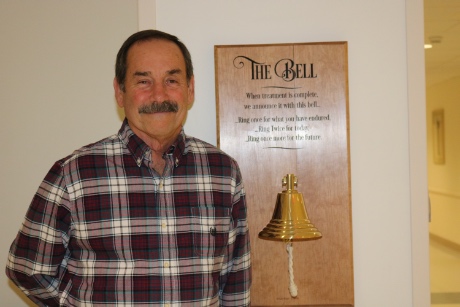Wilmot Cancer Institute Batavia Welcomes New Physicians, Nurse Practitioners
Press release:
Cancer patients in the Batavia area have new options for oncology providers as the team at UR Medicine’s Wilmot Cancer Institute (WCI) Batavia grows, adding two new physicians and two new nurse practitioners. The team additions will help improve access and enhance cancer care for patients in the area.
Khush Aujla, M.D., recently joined WCI Batavia as a radiation oncologist. He sees patients at WCI Batavia on Mondays and Thursdays. Prior to joining the team, he completed his residency in Radiation Oncology at URMC. Aujla also completed a medicine internship at the University of Mississippi Medical Center, where he also earned his Doctorate of Medicine and bachelor’s degrees.
Kevin Mudd, M.D., continues to work on the Radiation Oncology team as well, seeing patients three days per week.
Julie Natale, DNP, FNP-C, joined the WCI Batavia Radiation Oncology team as a nurse practitioner, working in Batavia two days per week. She previously worked as the nurse manager for Radiation Oncology at the James P. Wilmot Cancer Center in Rochester.
Bruce Yirinec, M.D., joined WCI Batavia as of Oct. 1 as a medical oncologist. He previously worked at Rochester Regional Health’s Clifton Springs Hospital. Yirinec completed fellowships in Hematology at URMC and at the University of Virginia Medical Center. He earned his Doctorate in Medicine degree from Dartmouth Medical School.
Jennifer Richard, AGPCNP, also joined the team, working as a nurse practitioner on the Medical Oncology side with Yirinec. She previously worked with Strong Memorial Hospital’s Memory Care Program and the URMC Stroke team. Prior to that, she worked as a registered nurse at the inpatient unit on the sixth floor of the Wilmot Cancer Center in Rochester.
“I’m so excited to expand our clinical presence in Batavia,” says Jonathan W. Friedberg, M.D., M.M.Sc., director of Wilmot Cancer Institute. “The community has embraced Wilmot, and our goal remains that our patients will have access to the best cancer care, including innovative clinical trials, in Genesee County.”
To contact WCI Batavia for more information or to set up an appointment, call (585) 344-3050 for Radiation Oncology or (585) 602-4050 for Medical Oncology.

